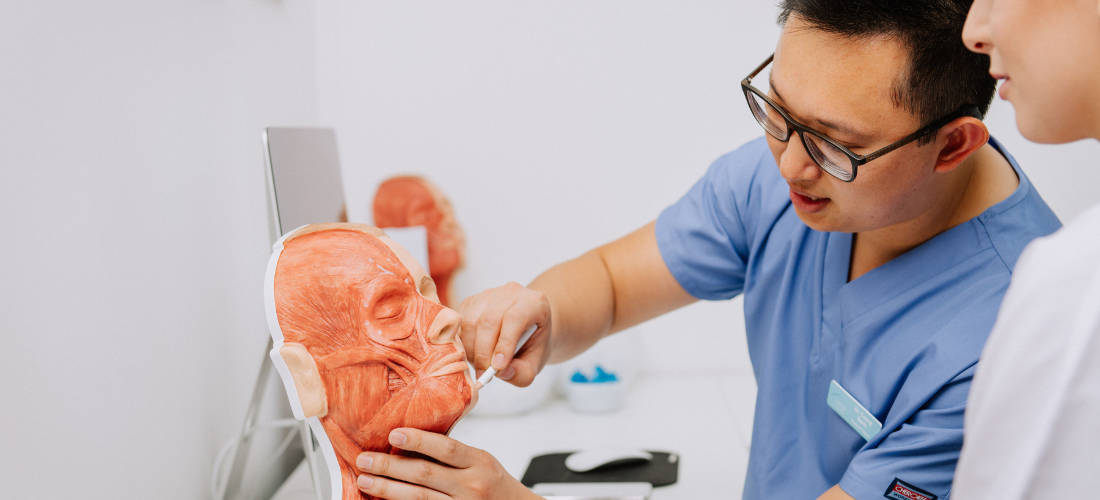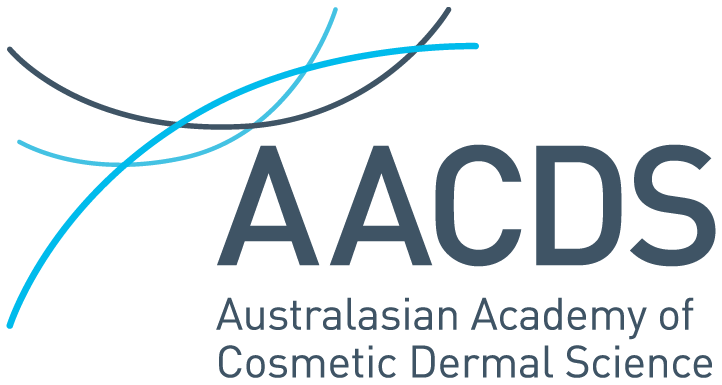What the new Ahpra cosmetic guidelines mean for education and the future of patient safety

On 3 June 2025, the Australian Health Practitioner Regulation Agency (AHPRA) released a set of updated guidelines aimed at strengthening safety and oversight within the non-surgical cosmetic sector. These guidelines cover everything from prescribing protocols to advertising practices, signalling a necessary shift toward higher standards across the board.
At AACDS, we welcome these new AHPRA cosmetic guidelines. For us, it reaffirms the principles we have always believed in: quality education, comprehensive training and a strong commitment to patient safety and care.
Clearer guidelines, safer outcomes
AHPRA's updated expectations include formal education in anatomy and patient assessment, mandatory in-person or video consultations before prescribing, restrictions on advertising, and tighter controls around consent and psychological screening. You can read more on AHPRA's website here:
- Performing Non-Surgical Cosmetic Procedures
- Advertising Higher-Risk Non-Surgical Cosmetic Procedures
“These updates are not just about regulation, they’re about strengthening the foundation of our industry and ensuring safer outcomes for every patient,” advises Dr Keturah Hoffman, Head of Cosmetic Medicine at AACDS.
Education that takes time, because it should
One of the most discussed changes in the new guidelines is the requirement for nurses to have at least 12 months of general nursing experience before they begin performing cosmetic injectables. This has sparked conversation across the industry, but to us, it reflects something we’ve always known: you can’t learn complex procedures in a weekend course.
“At AACDS, we’ve always structured our learning to allow time for depth, reflection and skills development,” says Kylie Fahey CEO at AACDS. “Before students even come to the practical component, they’ve spent around 18 months building a solid foundation of anatomy, analysis of the skin, and consultation techniques. This includes how to recognise when a treatment may not be suitable. That might be identifying visible skin concerns, understanding when to refer on, or recognising potential psychological factors like body dysmorphia.”
Our 52919WA Graduate Diploma of Cosmetic Nursing and Injectables runs over approximately 18 months. The first 12 months focuses on theory, covering topics like skin science, pharmacology, patient suitability, ethics and facial anatomy. This structure allows students to build a strong knowledge base before beginning their hands-on practical training in the final stage of the program.
“We fundamentally believe that learners need time to learn and time to embed their skills,” adds Kylie Fahey, CEO of AACDS. “Our courses are designed to provide that space for learning and reflection.”
When students reach the practical component, they undertake an initial 9-day intensive practical focused on dermal therapy, where they apply their knowledge and skills across a range of dermal procedures focussed on skin health and rejuvenation. Additionally, students then complete an intensive 4-day clinic focused specifically on injecting techniques. This clinic is led by a doctor and registered nurse, both who specialise in the cosmetic industry.
Both the dermal and injecting practical intensives are delivered within an Aspire Training clinic and students are trained with a ratio of two students to each trainer. The Aspire Training Clinics are fully operational clinics where students are provided with the foundation skills of operating an aesthetics clinic including patient consultation, industry compliance requirements and appropriate record keeping.

Proactive by nature, not reactive by necessity
Over a decade ago, AACDS introduced Australia's first nationally accredited qualification in cosmetic nursing. Since then, we have continued to adapt and strengthen our curriculum based on evidence, feedback and best practice.
“We released the latest version of the Graduate Certificate in Cosmetic Nursing course in January this year, and it’s encouraging to see the Ahpra guidelines reflect many of the same priorities,” Kylie shares. “It suggests the sector is moving in the right direction together.”
Course content like the assessment of psychological risk factors, comprehensive consultation protocols and education on ethical advertising – now required as part of the new Ahpra cosmetic guidelines – are already included in our 52919WA Graduate Diploma of Cosmetic Nursing and Injectables course. We’ve also recently completed a full reaccreditation process through national regulators to ensure ongoing alignment with best practices and patient safety standards.
“When it comes to patient safety and practitioner readiness, education is the frontline. We’ve always invested in getting it right,” notes Dr Keturah Hoffman.
Supporting the next generation of cosmetic nurses
A common question we're hearing is whether these new requirements might change the pathway for nurses interested in cosmetic training. The guidelines do introduce a minimum of 12 months’ general nursing experience before performing cosmetic procedures.
“This structure actually gives graduates the best of both worlds,” explains Kylie. “They gain on-the-ground nursing experience while working through rigorous, postgraduate-level theory. When they have completed time nursing and the theory, they will be ready for the practical component.”
Brad agrees: “We see consistently that students with clinical nursing experience approach consultation and client care with more confidence. It’s a key part of delivering safe, ethical cosmetic treatments.”
Ahpra’s guidelines are safer, smarter and more ethical
Ahpra’s guidelines also address how cosmetic procedures are marketed. Practices like using testimonials, glamourising outcomes, or making unrealistic claims are also explicitly prohibited. These evolving updates help restore trust and professionalism in the sector. We support them wholeheartedly.
“Ethical communication is a vital skill for practitioners,” notes Dr Hoffman. “We teach students how to talk about what they do in a way that supports informed decision-making.”
For years, AACDS has prepared students to communicate ethically, handle consent appropriately, and understand their responsibility as health professionals. These aren’t just academic discussions. They are real-world standards with real-world consequences.
As educators, we believe the question patients should ask is simple: Does your practitioner meet Aphra's education and experience standards?
Why these changes matter – and why we support them
These new guidelines provide a framework for safer and more ethical practices. They help ensure practitioners are thoroughly trained, clinically prepared, and focused on patient wellbeing.
At AACDS, we’re proud to be ahead of the education curve - not just meeting the new standards, but helping to define them.
“We’re here to support students at every stage,” says Kylie. “From their first unit of theory to their final consultation in the clinic, we’re equipping them with the tools and confidence to deliver safe, ethically compliant care.”
We welcome this next chapter and look forward to supporting our students and the broader industry as we continue to raise the standards for education, patient care and professionalism.
Read about the new Ahpra cosmetic guidelines here or learn more about the courses on offer at AACDS.

